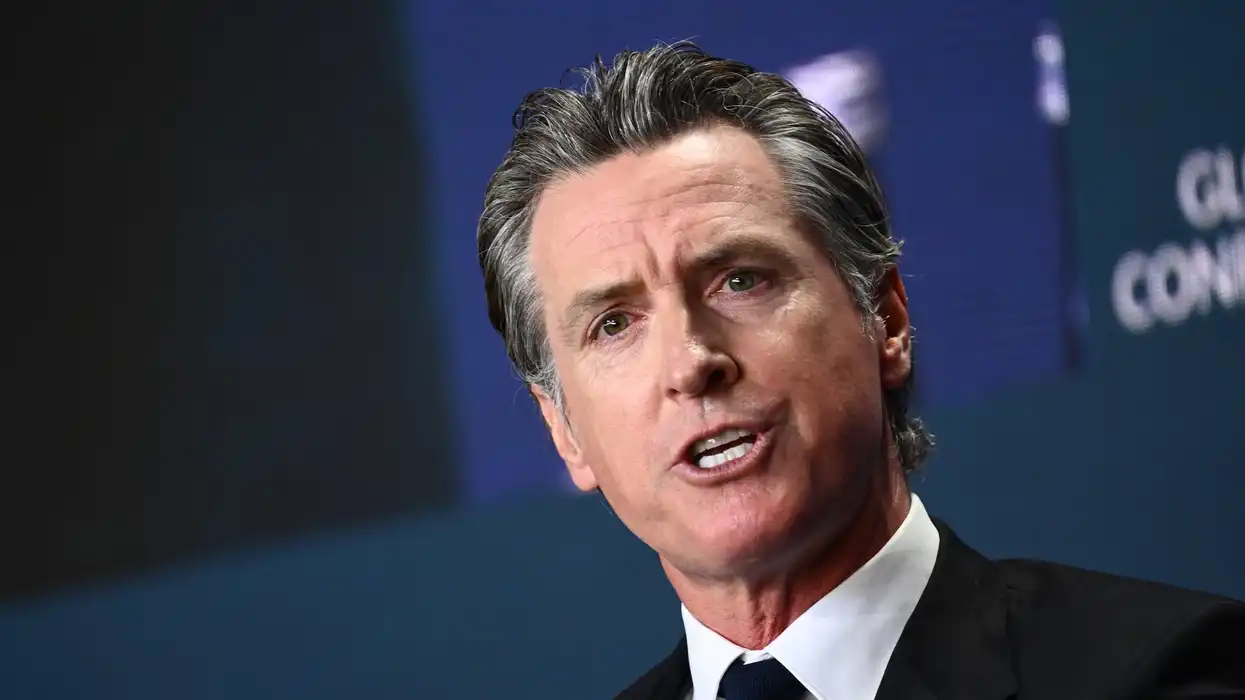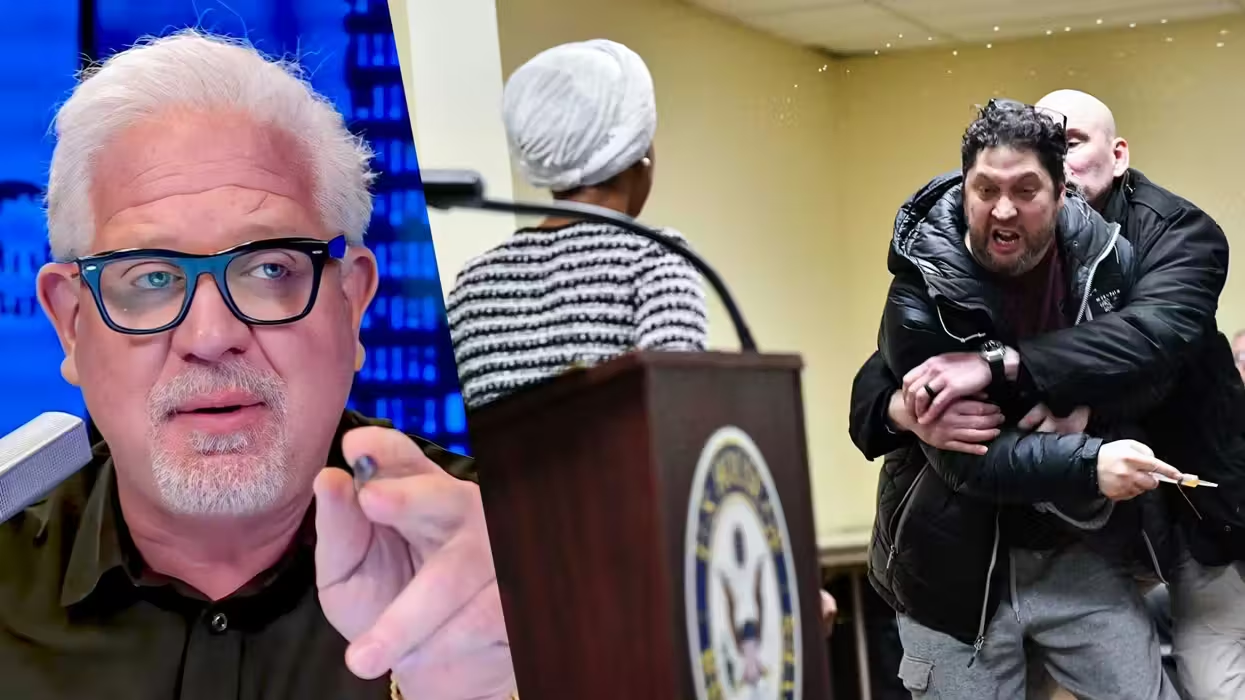© 2026 Blaze Media LLC. All rights reserved.
The Obamacare exchange subsidy case that will be argued in the Supreme Court on March 4 is being closely watched—and it should. While many have high hopes, it is not the magic bullet.
Todd Gaziano is Executive Director of the Pacific Legal Foundation's D.C. Center and Senior Fellow in Constitutional Law. He can be reached on Twitter @ToddGaziano.
-
Reporters and commentators are closely following the Obamacare exchange subsidy case that will be argued in the Supreme Court on March 4—and they should.
The federal government asserts that if tax subsidies are not allowed for federally-run exchanges, those exchanges will collapse from economic “death spirals” due to escalating insurance prices and an adverse selection of those left in the insurance pool. Others dispute whether the impact will be great enough to cause the federal exchanges to fail, and especially whether they would do so in the near term before Congress or the states could pass legislation addressing the matter.
Yet both sides agree that striking down the federal subsidies at issue in King v. Burwell, though consequential, wouldn’t spell an end to Obamacare by itself. Assuming the challengers prevail, the immediate result would be that health insurance costs for millions of low-income Americans in 34 states would increase substantially. Many might not be able to afford continued coverage.
 The Healthcare.gov website is displayed on a laptop computer arranged for a photograph in Washington, D.C., U.S., on Monday, Nov. 4, 2013. Andrew Harrer/Bloomberg via Getty Images
The Healthcare.gov website is displayed on a laptop computer arranged for a photograph in Washington, D.C., U.S., on Monday, Nov. 4, 2013. Andrew Harrer/Bloomberg via Getty Images
Reform-minded healthcare experts are urging the GOP to be ready with a legislative fix in June because the pressure to simply patch up Obamacare will be great. With horror stories of deaths due to denials of care and the mainstream media pushing the narrative of a “Republican shutdown of the healthcare markets,” liberals would hold out for either: (a) a technical correction bill in Congress that merely authorizes the subsidy on federal exchanges, or (b) more states to take over the federal exchanges to allow their citizens to receive the subsidy.
Reformers and insurers should use the opportunity to push for major legislative changes to Obamacare, but many obstacles would remain.
Even if the mainstream media reported the legislative debate fairly, game theory teaches that the single player on one side of a bilateral bargaining scenario (the president) has an advantage over a cartel that must remain relatively unified to succeed and whose members may benefit individually from defecting. Meanwhile, states with federal exchanges will be increasingly pressured to take them over.
For all those reasons, reformers would be wise to agree on a prudent response to a win in King and “screw [their] courage to the sticking place.” Even so, the legislative route is unlikely to produce a death blow to Obamacare as long as Barack Obama is president, even if it leads to some improvements.
Fortunately, however, several constitutional cases pending in the federal courts pose more sweeping challenges to the law.
 This photo taken Friday, Oct. 3, 2014, shows the U.S. Supreme Court in Washington. (AP Photo/Susan Walsh) AP Photo/Susan Walsh
This photo taken Friday, Oct. 3, 2014, shows the U.S. Supreme Court in Washington. (AP Photo/Susan Walsh) AP Photo/Susan Walsh
This causes great consternation to progressives who grow hoarse insisting, against all evidence that the debate over Obamacare is over! They might also try to stop the ocean tides because several of the cases have been pending for years, and they present strong grounds to overturn all of Obamacare. For example, if the judiciary invalidates Obamacare’s many taxes because they did not originate in the House as the Constitution requires, no simple fix is possible. Indeed, the judiciary should strike down the entire law itself since the non-tax portions would not be “severable” from the unconstitutional taxes.
The Pacific Legal Foundation filed the leading Origination Clause challenge, and that issue will be presented to the High Court later this year unless the offending taxes are repealed before then. After receiving an adverse ruling in Sissel v. HHS from a panel of the D.C. Circuit Court of Appeals, Pacific Legal sought rehearing before the full court, and it has some impressive amicus support from a number of states, congressional leaders, and constitutional scholars. The D.C. Circuit Court promptly ordered the federal government to respond to the rehearing request, and it has been considering those filings for over four months.
The judges could still be debating what to do, but the court typically doesn’t take four months to act on a rehearing request without writing more. More likely, some judges are writing dissenting and possibly concurring opinions that demonstrate how serious the issues are. There is a similar case awaiting decision in the Fifth Circuit. The underlying facts and law in both cases present compelling grounds for the High Court to take up the issue when the losing party seeks such review, likely in the next six months.
On the merits, readers will recall that Chief Justice John Roberts joined four justices in 2012 to hold that the individual mandate was not authorized by the Commerce Clause, but he sided with four other justices in holding that Congress did have authority to enact the penalty for not buying insurance pursuant to its taxing power. No judge below had accepted the tax theory, so the briefing on the tax issue in the Supreme Court was truly brief. The Court did write that Congress had to comply with all constitutional requirements for exercising its taxing power, so the initial Obamacare ruling did not purport to resolve all questions relating to such a tax.
Pacific Legal subsequently amended its lawsuit on behalf of Matt Sissel to argue that if the individual mandate penalty can only be upheld as a tax, it is still unconstitutional because it did not originate in the House of Representatives, as required by the Constitution’s Origination Clause. The reasoning of the district court and a panel of the D.C. Circuit in rejecting that claim would effectively gut the Origination Clause.
 Credit: Getty Images
Credit: Getty Images
On October 6, Pacific Legal asked the entire circuit court to rehear the case and reverse the panel decision. The atypical order for the federal government to respond (which it did on October 17) and the intervening months of consideration suggests the judges are taking the claim seriously.
When the Supreme Court agreed to hear King v. Burwell, there was no circuit split, and no final court decision had rejected the federal government’s position on the subsidies for the federal exchanges. If a question of statutory interpretation affecting one aspect of Obamacare is worthy of Supreme Court review, a case that raises a serious but broader challenge to the Obamacare law and also threatens to negate a core constitutional provision is doubly worthy.
Georgetown Law Professor Randy Barnett argued last October that “the case for correcting a mistaken constitutional interpretation [in Sissel] is even more important [than correcting a mistaken statutory issue], especially as the [Sissel] panel’s reasoning has the effect of completely gutting the Origination Clause from the Constitution.”
And given the unique procedure Congress used to pass Obamacare and the novel constitutional question it raises under the Origination Clause, the answer should not be left to the lower courts.
Before the first Obamacare ruling, Nancy Pelosi and the great majority of legal scholars ridiculed the notion that there were serious limits to Congress’s commerce power. While the ultimate decision was not the complete win the challengers sought, the Court did strike down an expansion of Medicaid on a Spending Clause ground it had never accepted before, and its ruling on the Commerce Clause was not what the 99 percent had predicted.
The first Obamacare decision established that the Commerce Clause imposes real limits on Congress that could not be evaded with fancy legal theories. Likewise, the Origination Clause also can’t be dismissed as a mere nuisance that Congress can easily defeat by declaring another “purpose” for imposing a tax. A legislative repeal of Obamacare’s illegal taxes would be preferable, but if that doesn’t happen, the Supreme Court should consider the matter, and however reluctantly, strike down Obamacare as unconstitutional.
–
TheBlaze contributor channel supports an open discourse on a range of views. The opinions expressed in this channel are solely those of each individual author.
Want to leave a tip?
We answer to you. Help keep our content free of advertisers and big tech censorship by leaving a tip today.
Want to join the conversation?
Already a subscriber?
more stories
Sign up for the Blaze newsletter
By signing up, you agree to our Privacy Policy and Terms of Use, and agree to receive content that may sometimes include advertisements. You may opt out at any time.
Related Content
© 2026 Blaze Media LLC. All rights reserved.
Get the stories that matter most delivered directly to your inbox.
By signing up, you agree to our Privacy Policy and Terms of Use, and agree to receive content that may sometimes include advertisements. You may opt out at any time.






